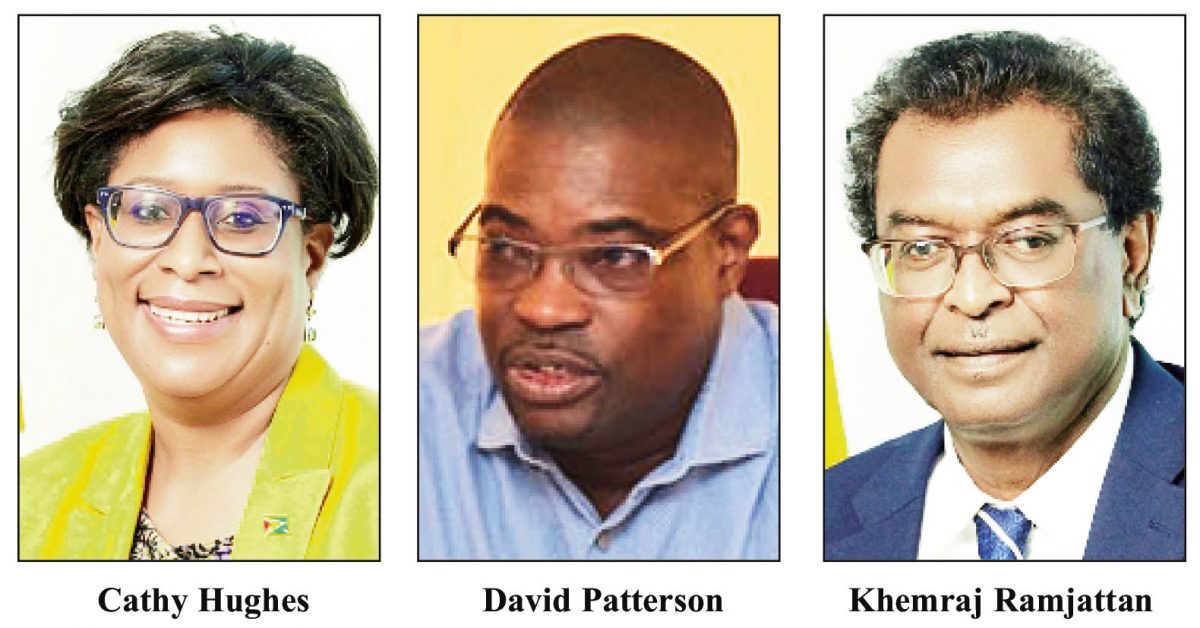The Alliance For Change (AFC) has said that in order for the Guyana Elections Commission (GECOM) to deliver free, fair and credible elections, it must first address the concerns of all stakeholders, which means embarking on a period of house-to-house registration with the aim of compiling a new voters’ list.
The main opposition APNU+AFC has been calling for the voters’ list to be “sanitized,” arguing that it is padded with names of dead people and those who have migrated. However, some members of the Elections Commission have consistently said that there need to be legislative changes before any house-to-house process can commence.
That position was taken following a ruling of acting Chief Justice Roxane George which said GECOM cannot arbitrarily remove the names of persons from the National Register of Registrants.
At the party’s press conference on Friday, Chair Cathy Hughes reminded that several international observers and civil society organisations. including the Carter Center, the European Union, the OAS and CARICOM, have unanimously stated that a house-to-house registration process is a fundamental requirement to electoral reform in Guyana.
She reminded that both the OAS and CARICOM in their 2020 elections observation report recommended the undertaking of house-to-house registration, with CARICOM saying “…it is clear that given the state of the voter registration of the country that Guyana was not adequately prepared for the 2020 polls…it, therefore, behooves the Commission to create a new voters registry especially given the suspicion that the 2020 register was bloated, a suspicion which is not without merit.”
She further reminded that post-2015 elections, then Opposition Leader and current Vice President Bharrat Jagdeo made several demands, including a new voters’ list and enhanced biometrics.
“With most citizens accepting that Guyana’s current voters’ list is bloated, the AFC considers it wholly unreasonable that GECOM would announce a period of Claims – August 22 to September 11 and Objections – August 22 to September 18 – a total of 28 days to scrutinize and cleanse this list of 684,354 which is felt to be almost in excess of 200,000 voters. It is clear that GECOM is not interested in providing a realistic timeframe for proper scrutiny,” Hughes said while referencing the recent announcement by the Elections Commission.
GECOM has said that it has embarked on a claims and objection period in preparation for Local Government Election which was due in 2022 but postponed.
The AFC is also calling for new biometrics for purposes of voter identification at the place of poll.
“The Alliance For Change raises these important issues recognizing that the rebuilding of confidence in GECOM – its electoral procedures and ability to deliver free, fair and credible elections that the people can endorse, is an urgent priority for all Guyanese stakeholders and must be addressed prior to the holding of any future election,” Hughes said.
GECOM is aiming to deliver LGE by late November or early December, which means the same list of electors would be used. The preliminary list, released last week, has some 684,354 names which is a concern for the opposition since they are claiming that it amounts to 91% of Guyana’s population.
When asked whether AFC would be contesting the LGE given the concerns over the list, Hughes indicated that the party “really haven’t reached that point yet” rather it is focused on having GECOM address concerns with the list.
No impediments
At the press conference on Friday, both Leader of the AFC Khemraj Ramjattan and former General Secretary David Patterson said that there are no impediments to GECOM embarking on house-to-house registration.
Ramjattan said that GECOM just needs to take the action and start the process.
“…All it takes is executive action. Go ahead and do the house-to-house thing. You don’t have to go amend any laws, as far as I understand and it is that simple,” he said.
Meanwhile, Patterson argued that in 2008 there was house-to-house registration that did not require legislative amendments. He said that the list compiled from that process was used in the 2011, 2015 and 2020 elections.
“…A new house-to-house registration doesn’t violate any of the Chief Justice’s ruling. The Chief Justice ruled that you can’t take persons off of the existing register…but when you do a new house-to-house registration it only registers the persons that are here. If somebody is abroad, during the house-to-house registration when they come back they simply do exactly what happens now [which is] they go to GECOM said I was abroad when you came to my house.
“There’s no legal impediment whatsoever house to house registration [it’s] just purely executive action…we’re not asking to exclude anybody. The house to house is who’s here will be registered, who has died will not be [registered], who has migrated will not be [on the list as well]. Whether they choose to come back to register then they can…there is no impediment whatsoever,” Patterson maintained.






